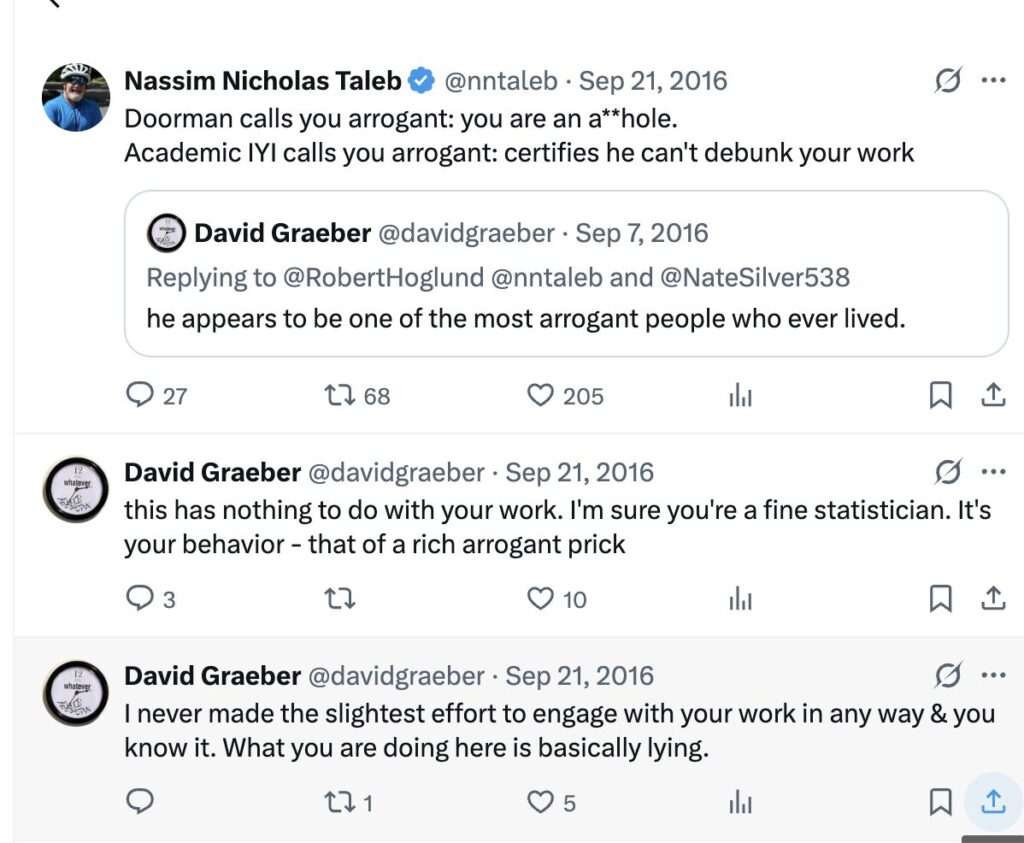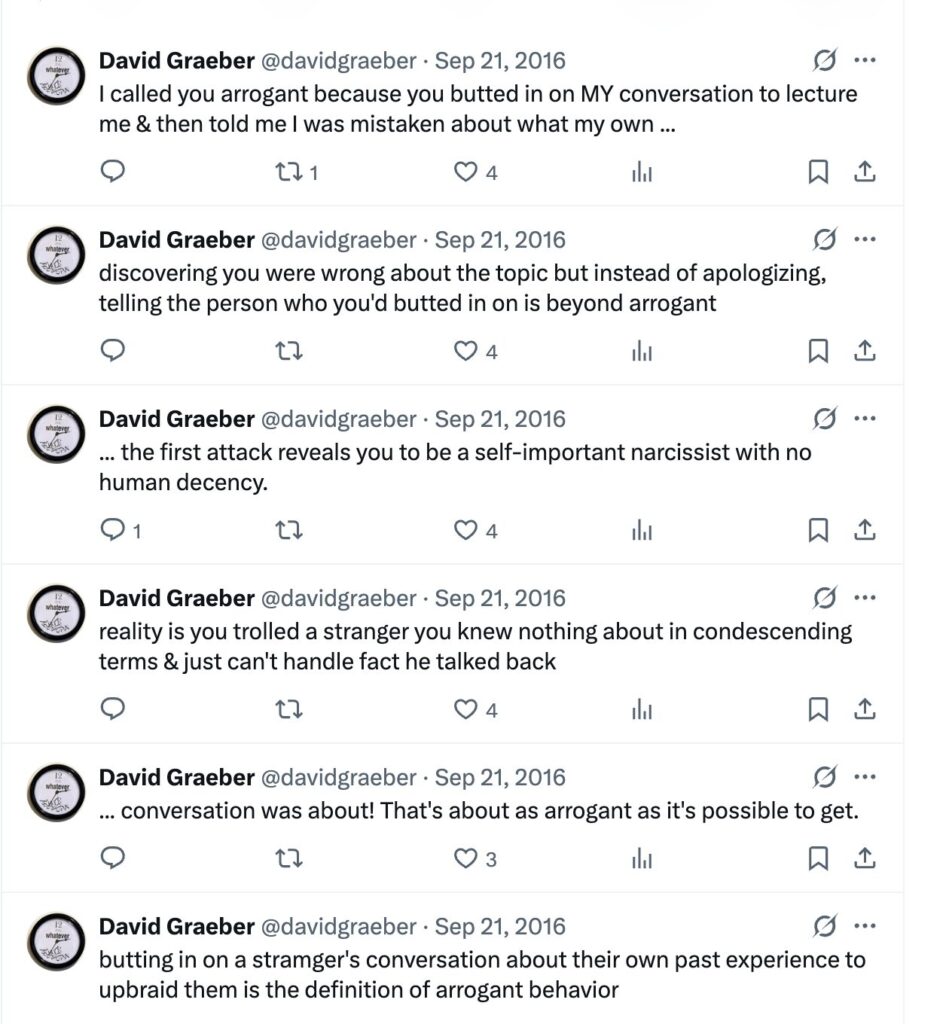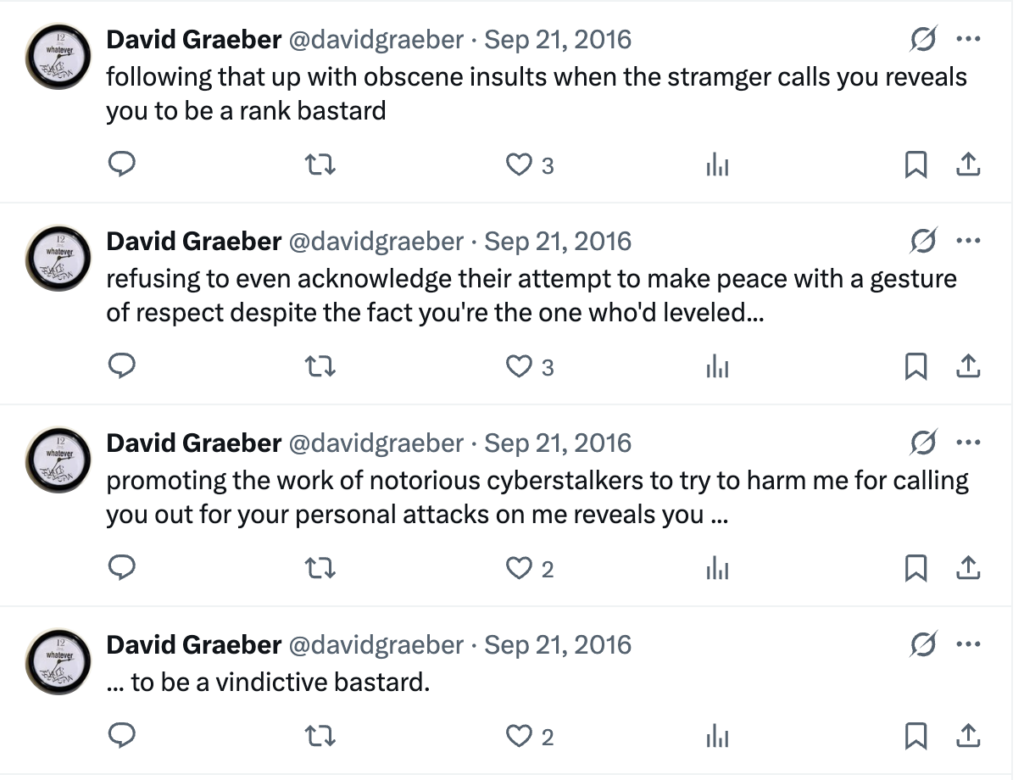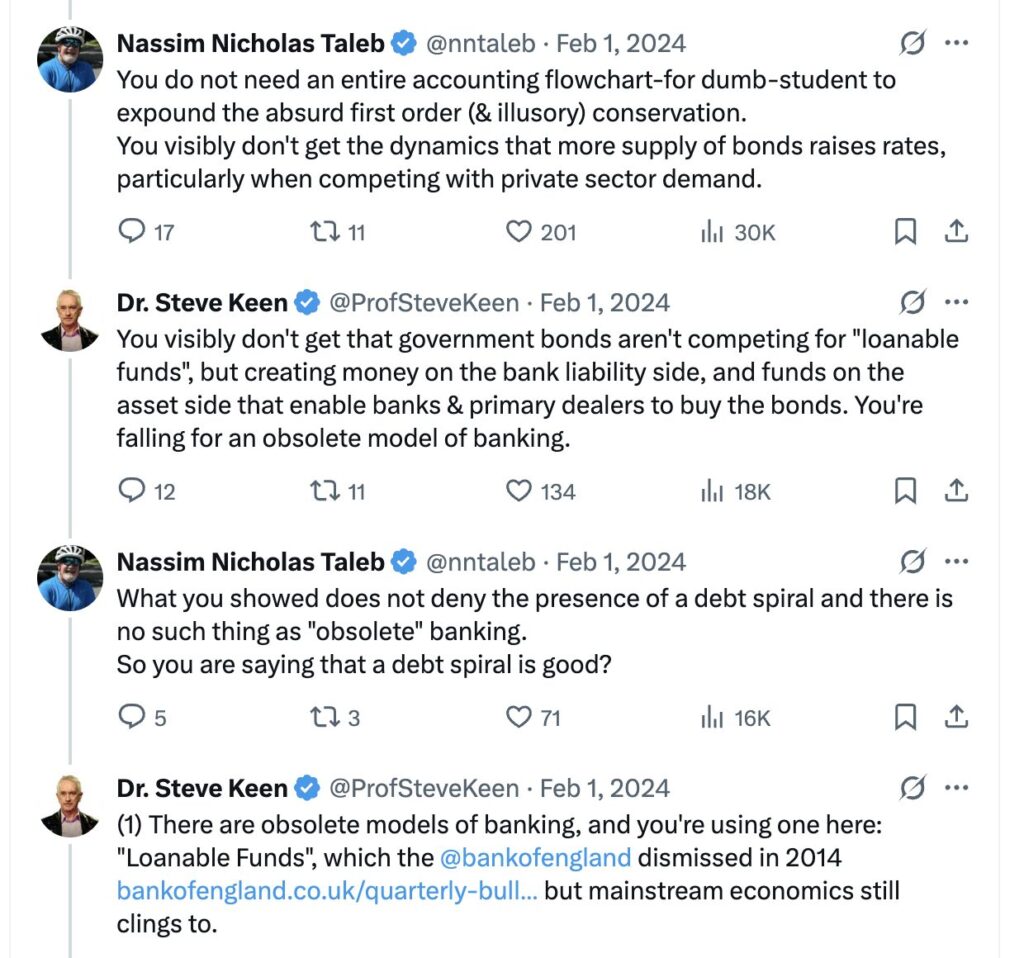David Graeber’s intellectual enemies included both defenders of mainstream economics and some radical leftists who felt he diluted their critique. His most high-profile public fight was with Nassim Taleb (author of The Black Swan), centering on the meaning of value and the legitimacy of different forms of social organization. Their dispute remains a touchstone for debates about the future of work, value, and society.
Graeber’s Position: Graeber advocated for an axiology based on social bonds, kinship, and communal relations. For him, value is forged through human connections and collective processes—what he called anthropoiesis, or human-making through care, education, and mutual support.
Taleb’s Position: Taleb, in contrast, embraced a more individualistic, Nietzschean perspective. He emphasized chrematistics—the art of money-making—and viewed value as the accumulation of wealth and self-creation. He frequently criticized the “intellectual yet idiot” class, accusing Graeber of resenting capitalist success and being disconnected from “real” value creation practiced by entrepreneurs and self-made individuals.
Graeber:
“Nassim, you seem to believe that value comes primarily from individual risk-taking and wealth accumulation. But from an anthropological perspective, most value in society is created through what I call anthropoiesis-the ongoing, collective work of making and caring for people: child-rearing, education, maintaining social bonds. Why do you ignore the value produced by these social relations?”
Taleb:
“David, you academics are obsessed with theories that have little bearing on reality. You resent the success of entrepreneurs and ‘self-made’ people because you’re part of the ‘intellectual yet idiot’ class. You try to disqualify me from discussion because I had wealthy ancestors. That’s institutionalized envy.”
Graeber:
“I’m not attacking you personally, Nassim. But the point is, mainstream economics-and your approach-systematically undervalue the kinds of labor that actually hold society together. As I’ve written, ‘human fulfilment can be related to the satisfaction derived from working for the common good,’ not just pursuing individual gain.”




Graeber:
“But you miss that most people’s actions are motivated by more than just self-interest or risk. Even our self-indulgences tend to be dominated by the logic of the gift. Society is a battle over access to the means to behave altruistically. The market isn’t the only source of value.”1
Taleb:
“You see, David, you want to engineer society based on your theories of care and altruism. But you forget that attempts to control or redistribute wealth often entrench the privileged. The market, with all its flaws, is better at rewarding real risk and value than any academic scheme.”8
Graeber:
“I’m not advocating top-down control. I’m arguing for recognizing the full spectrum of value-including the invisible work of care and social reproduction. If we ignore that, we’re left with a society that rewards only those who play the game of symbolic wealth, not those who actually sustain it.
and here is the recent clash on Twitter between Steve Keen and Nassim Nicholas Taleb





